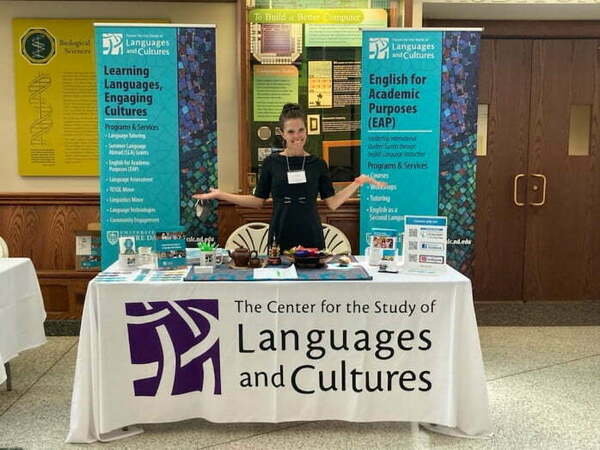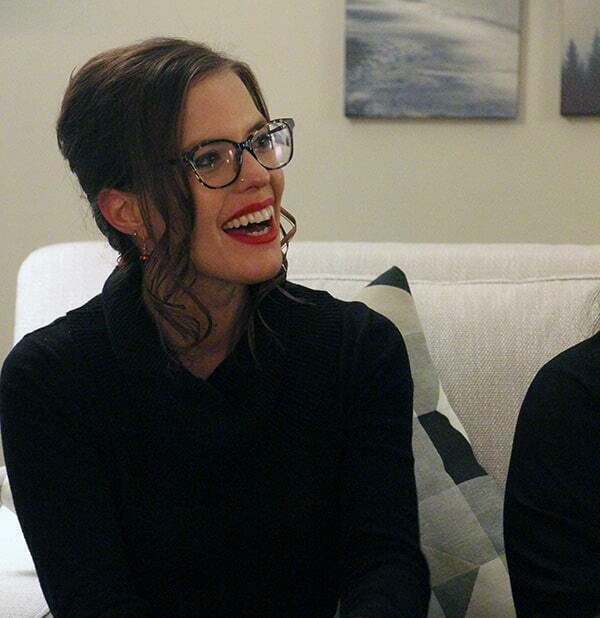
Notre Dame has gone global. With a combination of facilities, programs, projects and relationships on six continents, there is no doubt that the Notre Dame community is working to make a better world. More importantly, we are also going global here at home. In the past few years, the University of Notre Dame has seen a shift in the demographics of the student and faculty population. The University of Notre Dame Class of 2022 featured students from 66 nations, 49 states, two U.S. territories and Washington, DC (Blasko, 2018). In 2020-21, more than 2100 international students were attending Notre Dame as undergraduate and graduate students, making up about 17.1 % of the student body, according to the Office of Undergraduate Admissions (2022). The number grows when we consider that there is a large number of international faculty and staff, too.
One of the reasons that Notre Dame is enticing international students is because of the resources that are provided by different groups throughout campus, including the Center for the Study of Languages and Cultures (CSLC). The English for Academic Purposes Program (EAP) is part of the CSLC, and offers support services for the entire Notre Dame community who are learning English or who want to improve their reading, writing, listening, and speaking skills.
The success of the program is due to the energetic efforts of one woman: Lisa Oglesbee, Teaching Professor and Coordinator of the EAP program. Sadly, the CSLC is announcing the departure of Lisa this summer, who is taking time to be with her family and to redirect her efforts in teaching English–her life’s passion. We are sorry to lose her, but thought that this would be a great opportunity to showcase all that Lisa has built in the past eight (8) years to support students, faculty, and staff whose native language is not English.
On EAP Workshops, Classes, and Tutoring

The EAP program offers multiple workshops every semester on different aspects of American culture to help learners navigate their lives here in the United States. Topics range from pronunciation and writing to American holidays and intercultural communication. We asked Lisa where she gets ideas for the topics and her answer was automatic. “I am inspired by my students – the questions they ask. Like the workshop Surviving Winter in South Bend came because every fall in my classes, students are like, ‘You know, winter is coming. I'm so scared. What's it like? What kind of clothes do I wear?’ Before class they are all talking about how it's 50 degrees in the air and it's so cold!"
The workshop “Women in Academia”, for example, came from concerns that her female students were having. In trying to understand behaviors and conversations, they struggled to tell if it was because they were international students, women, or both. She worked with one of her graduate students to develop an informative session on how to understand gender and what it meant in terms of tenure rates, wage gaps, and sexual harassment.
Workshops are not the only support offered through the EAP program. Several classes each semester help students to develop speaking, writing, presentation, and intercultural skills. The EAP program also offers tutoring for students and an exclusive tutor for international faculty who wish to improve their English. There is also a bi-weekly Language Table open to anyone interested in practicing conversational English.
Lisa developed multiple techniques for managing the processes involved in organizing all the EAP program offers, and even finds time to work with graduate students on their dissertations. On top of it all, she finds time to do one-on-one tutoring sessions with students and faculty as well.
On Life’s Path to Notre Dame
All this effort points to the fact that Lisa found her passion and purpose in life. When she was 13, a Bible study leader who was a missionary to China and was home on furlough. Lisa got to know her very well. Even though she was still so young, she couldn’t help thinking that this woman had the “coolest job”. She was not only able to travel and see the world, but she was also able to meet all kinds of people and help them through her teaching. Lisa had a love for language even then, and she just knew that teaching English would be her dream job. So when she graduated high school, she attended Bethel College where she earned a BA in Biblical Literature. Bethel did not have a TESOL (Teaching English to Speakers of Other Languages) program and so Lisa attended Indiana University at Bloomington to earn her master's degree in TESOL and Applied Linguistics's.
She has had many mentors since that time, and recounted fondly some of those who have supported and guided her here at Notre Dame. Many have also become close personal friends – a benefit of working and living in South Bend. She pointed out that she has learned not only from those who were older and more experienced, but that she has also connected with people who were peers. Age and rank are not the only sources of learning. “One person I have worked closely with teaches me something every time we get together, and she is eight years younger than me!"
On Career and Family

With all the effort Lisa has put into the EAP program, she very much embodies the archetype for today’s working woman. “With all the administrative responsibilities, my teaching…I felt this job was taking away from my family. When I was with my family, I felt they were taking away from my job. And even in the job, with all the different roles I navigated as a program manager, I felt I was taking away from my teaching…from my students.”
This statement opened up the conversation to a new direction. Having a full-time job and a “full-time family” has made her life seem chaotic as she felt that there always seemed to be a problem to solve or a crisis coming from one direction or the other. She said this was true for husband as well. “I see my husband, certainly and even with the two of us working together…if there's a crisis at one of them (family or job), it's fine. If there are crises at both places, it's not fine. If there are problems to be solved in both places, that's when you feel it."
She continued, “When there's a crisis going on at work, it bleeds over into whatever crisis is going on at home. This affects my family, because I have less emotional capacity, right? It's not like I can pretend work's not there and I'm not stressed by work. Right? So even though I'm dealing with my family and sacrificing to make sure that they're OK and whatnot, you know, there's still stress and there’s even logistical issues that add even more stress.”
One thing that Lisa felt helped to understand how things could improve for all working moms and dads is blending working at home and the campus. She indicated that the shift to online was challenging, but once the kinks were worked out she saw how a blend of at home and at work could support both families and the responsibilities of career.
Throughout her time at Notre Dame, Lisa learned one important lesson. “I think I've learned a lot about how to take care of myself through all of my responsibilities. Some things you can’t control – especially if there is a crisis in both places.” And taking time to breathe.
On Triumphs and Tribulations
Lisa has faced many successes and challenges not just as a professor, but also as a program manager. She said that her passion is teaching English, but she didn’t really mind the administrative side of coordinating a program. “I actually really love managing a team and investing in people and mentoring them,” she said with a smile. But the most time-consuming part of the job was managing the many layers of higher education bureaucracy that she had to navigate – especially at the beginning of her career. “I wasn’t good at it in the beginning…and that took away some of the joy of learning about the culture of Notre Dame.”
For me, teaching is my passion and is something that I just know I'm good at, and I feel very confident and strong in it and I enjoy it.
In talking about what was most important – the program management or the teaching. Lisa said, “I think it depends on the person's personality and what their skill set is. For me, teaching is my passion and is something that I just know I'm good at, and I feel very confident and strong in it and I enjoy it. So, I enjoy every aspect of the teaching like every single one. I don't mind grading. I don't mind working with students who are struggling."
She observed that it was challenging advocating for the EAP program because of the layers of decision-making built into any university structure. It was frustrating in the beginning, but as she continued to develop relationships, and even strong friendships, she learned to navigate ways to share her knowledge and expertise with decision-makers. She said that having a supportive director to help promote the program was extremely important. “Alessia Blad-Miller [Director of the CSLC] is wonderful. When I could not be in a meeting to advocate, she advocated for the program.” She stated that while it would be better if her native knowledge of the needs of the international people at Notre Dame could be communicated directly, having somebody who felt as passionately as she does has really helped to grow the program. "
On Gratitude and Goodbyes
Lisa is very grateful for the stability that being at Notre Dame has provided for her and her family. Her husband was able to start a high school because they had a steady income, and was also able to take career risks. Those risks have paid off, and now it is Lisa’s turn to take some risks, which is one of the reasons why she decided to move on to the next stage of her life’s journey. She is, in her heart and in her life’s purpose, a teacher. Focusing on that and getting back to the reason she received her TESOL certification and education in applied linguistics is part her decision to leave. She wants to also put more focus on her family, and to also dedicate more time to helping refugees in the area build skills and transition to life in South Bend.
I am still going to be here, supporting the Notre Dame community.
Saying goodby to the CSLC team is difficult for her, because she sees the great things the CSLC has been doing and how it has grown over the past few years. She is also very aware of the support that the CSLC has given the EAP program, and is grateful. As she gathers up EAP brochures for distribution to her extensive network of colleagues who also support international students, and prepares everything for the new EAP Coordinator, she adamantly states, "I am still going to be here, supporting the Notre Dame community."
To learn more about the English for Academic Purposes program, visit https://cslc.nd.edu/services/eap/. You can also subscribe to the CSLC newsletter to receive regular updates on EAP events and workshops.
References
Blasko, E. (2018, August 24). Class of 2022: Intellectually and globally diverse, dedicated to service and leadership. Notre Dame News; Notre Dame News. https://news.nd.edu/news/class-of-2022-intellectually-and-globally-diverse-dedicated-to-service-and-leadership/
University of Notre Dame (2022), University of Notre Dame International. https://issuu.com/universityofnotredamenewmedia/docs/internationalfactsheet
Maureen Hogan is the Instructional Designer/Technologist for the CSLC, which supports students, faculty and staff in learning about language, culture and intercultural competence. For information on submitting or sharing news articles to the CSLC web page, or requesting help from the CSLC Media Team, contact mhogan22@nd.edu.